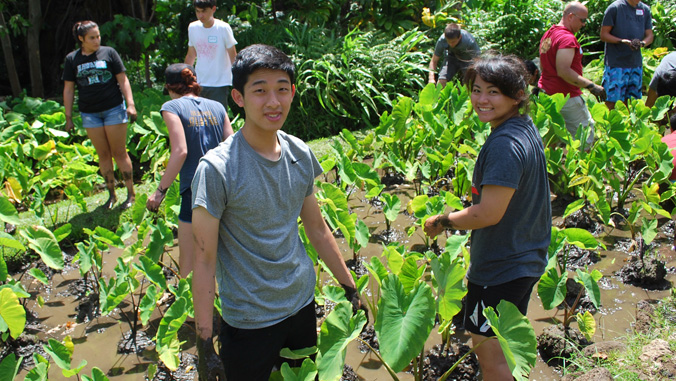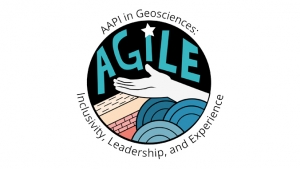
The University of Hawaiʻi at Mānoa is partnering with seven other institutions on a new initiative that fosters belonging and participation among Asian Americans and Pacific Islander (AAPI) students in the geosciences. The National Science Foundation-funded project, titled AGILE (AAPI in Geoscience: Inclusivity, Leadership, and Experience), is led by Daniel Ibarra, at Brown University and Kimberly Lau at Penn State.
With the support of a $209,243 grant, the project aims to improve the awareness of geosciences among AAPI undergraduates and cultivate a national network of mentors that will boost AAPI participation in geoscience graduate programs and careers.
With UH Mānoa being an Asian American and Native American Pacific Islander-serving institution, and the UH Mānoa School of Ocean and Earth Science and Technology (SOEST) being one of the premier geoscience schools in the world, SOEST is well-positioned to play a role in helping increase participation of AAPI in the geosciences.

David Ho, from SOEST’s Department of Oceanography and co-investigator on the new project, will work with the other partners on establishing the research visit program and the research internship program, as well as participate in career development events and workshops. These efforts connect students with invaluable research experiences and enhance professional skills needed to succeed in the field of geosciences.
“The Earth and environmental sciences impact every person on our planet in some way, and so it’s a priority that our field is as inclusive as possible,” said Lau. “Who gets to become a geoscientist is a topic that the community has been focusing on. Through this project, we aim to provide more exposure to the Earth and environmental sciences, as well as create new opportunities for AAPI undergraduates to learn about how they can make an impact.”
The grant funds exciting new initiatives, including a pilot research visit program that will support short visits by faculty, graduate students and other scientists to AAPI-serving institutions to bring awareness of geoscience careers and graduate school to AAPI students. The project also includes career-development events and workshops, and an undergraduate research internship that will connect students with meaningful geoscience research and learning opportunities.
Through all of this, the project plans to expose as many as a thousand undergraduates across the country to geoscience research and careers, establish a new research internship opportunity, and create national cross-career connections between AAPI geoscientists in diversity and inclusion discussions.
This program is an example of UH Mānoa’s goal of Becoming a Native Hawaiian Place of Learning (PDF), Enhancing Student Success (PDF) and Building a Sustainable and Resilient Campus Environment: Within the Global Sustainability and Climate Resilience Movement (PDF), three of four goals identified in the 2015–25 Strategic Plan (PDF), updated in December 2020.

